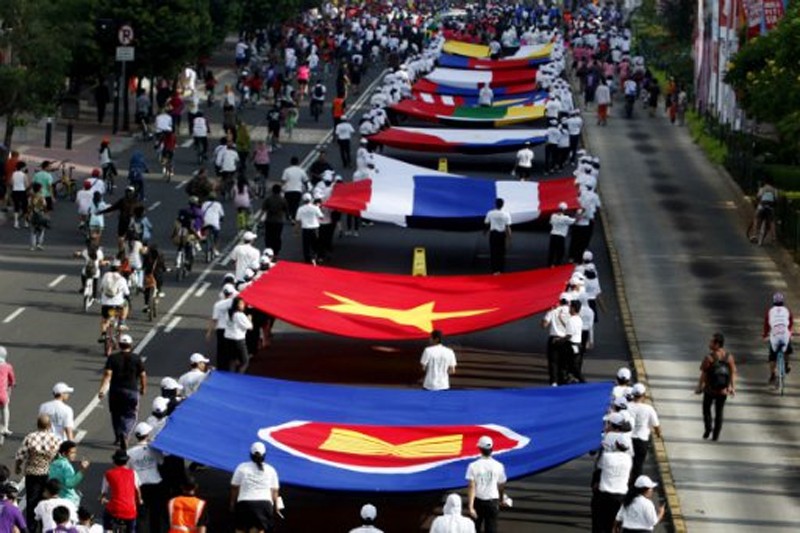Popular Reads
Top Results
Can't find what you're looking for?
View all search resultsPopular Reads
Top Results
Can't find what you're looking for?
View all search resultsTalent war in ASEAN Economic Community
Change text size
Gift Premium Articles
to Anyone
F
ollowing the formal establishment of the ASEAN Economic Community (AEC) in 2015, the AEC will eventually have a great impact on the way we live, work and do business in the ASEAN region. As we know, at the end of 2015 the AEC was launched to make the region a single market and production base.
The AEC blueprint is built on four interrelated and mutually reinforcing pillars: a single market and production base, a highly competitive economic region, a region of equitable economic development and a region fully integrated into the global economy.
Most ASEAN countries are still at a relatively early stage of development and have large infrastructure gaps. Further liberalization of inter and intraregional flows of goods, services, and capital could be beneficial for growth, the creation of jobs, and inclusion in ASEAN.
Accordingly, the AEC is about creating a common market with the “free movement of goods, services, investment, skilled labor, and free flow of capital”.
Regional integration in ASEAN will certainly have an important impact on how businesses are managed across the region.
Indonesia is one of the major economies of Southeast Asia and the government has set itself ambitious goals for its social and economic development, for which human capital development is crucial.
It is important that Indonesian workers can compete with other ASEAN workers.
Indonesia has a huge pool of talent. However, in order to unlock this pool of talent, governments, business leaders, educational institutions and individuals must comprehend this potential and act on it by putting in place correct policies.
Indonesia faces a considerable challenge in providing an education workforce able to deliver high-quality teaching to every student across the country.
Enhancing the quality of basic education in Indonesia remains a key challenge for the government.
However, it is a vital issue as without good quality basic education, Indonesian children will fail to acquire the skills required to lead full and productive lives.
Currently characteristic of Indonesia is that the unemployment rate is highest for people between the age of 15 and 24 years.
Fresh graduates from Indonesian universities, vocational schools and secondary schools encounter difficulties finding their place in the national workforce. There are three challenges of human capital development in the AEC era.
First, how to develop leaders, employees and students to meet the standards of the global economy both from the national and regional perspective.
Second, how to develop leaders, employees and students that can effectively work across the ASEAN region.
Third, how to build and develop leaders who have the capabilities to lead an ASEAN workforce.
A vast majority of companies are undertaking transformation initiatives to rethink their global strategies, business models and organizational approaches as a result of rapid shifts in the marketplace.
Business transformation and the new geography of talent likewise calls for a fresh way of doing things in ASEAN. Companies cannot rely on a one-size-fits-all strategy across such widely varying markets.
This transformation will require new employee skill sets, including having a global mindset, agile thinking and stronger interpersonal skills to deal with new ways of working and increased diversity and complexity in the workplace.
This also places stronger need for highly effective managers and supervisors, as they have the biggest impact to employee engagement and workplace productivity.
According to a survey that leverages the experience of the EU’s initiatives, there are five initiatives that we can explore in the talent war battle.
First, extend the mobility of workers across the region and set targets for increased mobility. Accelerate and broaden the recognition of professional qualifications across ASEAN.
Second, Extend the mobility of students in higher education and professional schools by enlarging the number of higher education institutions in the ASEAN University Network beyond the present 30 members and setting regional targets to significantly increase the limited number of students currently benefiting from AEC exchanges.
Third, set up an ASEAN internship mobility network that would allow a student from one member country to apply for an internship in a company in another member country.
For professional and business higher education degrees, require internships outside one’s home country, especially at the master’s degree level.
Fourth, to accelerate the number of experts, professionals and managers capable of leading regionally and globally, increase the number of master degrees related to business and technology.
Fifth, to play a leadership role in the global economy, to create global companies and develop global business leaders, proficient in the English language is necessary in all ASEAN countries.
However, ASEAN students also need to learn other ASEAN languages and gain experience studying and working in ASEAN countries.
_______________________________
The writer is vice president of the Sharia and MSME Academy — CIMB Niaga Indonesia. The views expressed are his own.










